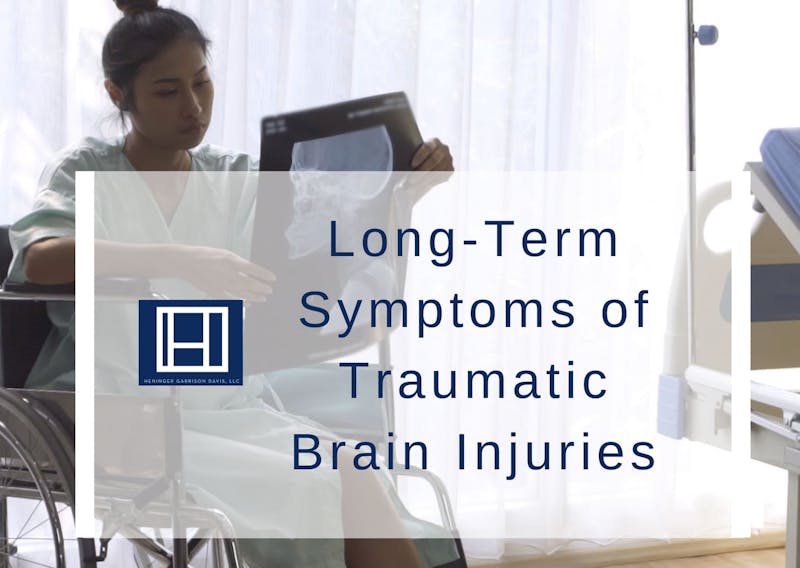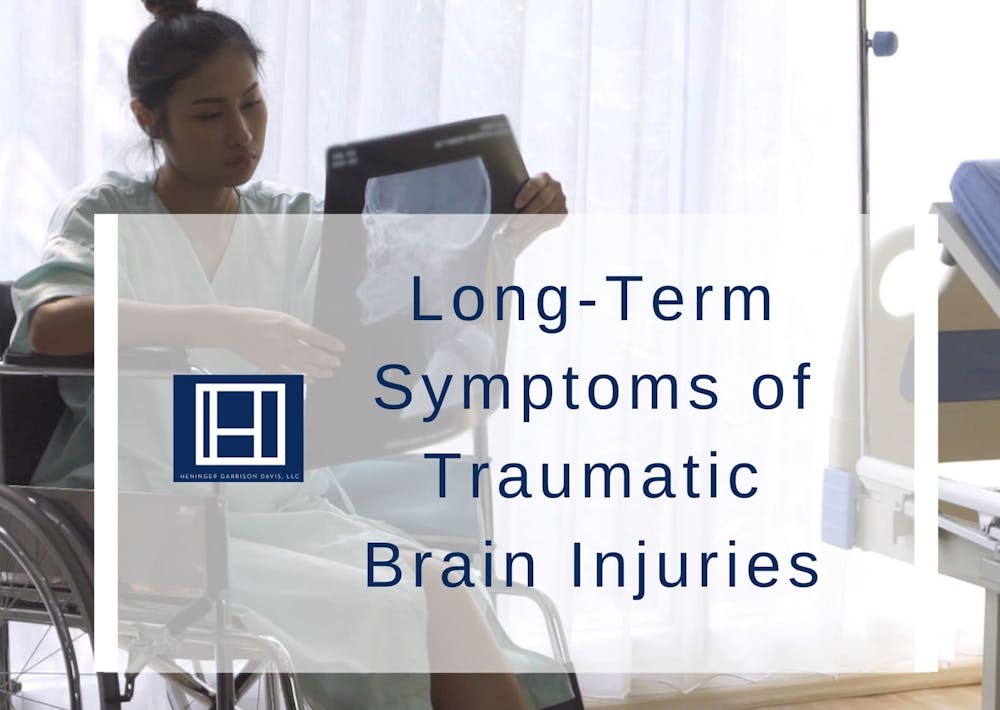

Researchers have only begun to understand all of the long-term symptoms experienced by victims of severe traumatic brain injuries (TBI). Severe traumatic brain injuries have a profound and long-term effect on those who experience them. In the immediate aftermath of a traumatic brain injury, the patient often requires emergency surgery to stop the swelling and bleeding of the brain. When the patient recovers sufficiently, they usually attend an intensive rehabilitation center for at least two months.
Unfortunately, resources and insurance coverage frequently do not cover all of the traumatic brain injury treatment expenses. Many individuals must return to their homes from rehabilitation, even if they would benefit from a more extended stay. As a result, the burden of caring often falls on friends and family members who are ill-equipped to care for their loved ones. Caring for a loved one with long-term symptoms is incredibly difficult when a spouse must also work full-time to provide an income for their family. In many cases, the symptoms of traumatic brain injury become less severe over time. However, numerous recent studies have shown that victims of moderate to severe traumatic brain injuries experience symptoms for years to come.
Long-Term Physical Symptoms of Brain Injuries
The physical symptoms of a moderate to severe traumatic brain injury can last for years. One-fifth of individuals who experience severe traumatic brain injury report difficulties with their physical health. In some cases, these difficulties last four decades. Headaches and migraines are common side effects of a traumatic brain injury. Unfortunately, many studies have shown that headaches frequently become worse or more severe over time. Even when doctors report that patients have made a full recovery, many continue to have residual headaches.
Patients can also experience dizziness such as lightheadedness or vertigo After experiencing a traumatic brain injury. Many patients report that their dizziness lasts well after the five-year mark post-injury. Along with dizziness, traumatic brain injury survivors may experience difficulties with their vision due to convergence insufficiency, making it difficult for a person’s eyes to focus properly. These challenges can cause blurry vision or double vision that makes driving and engaging in other daily activities challenging.
Traumatic brain injury survivors can also experience fatigue due to insomnia, or other complications. Living with these can make it extremely difficult to return to work, and many who experience fatigue also experience light sensitivity. Finally, victims can experience post-traumatic epilepsy, which includes late-stage seizures. Seizures can become one of the most devastating ongoing symptoms for traumatic brain injury survivors.
Several recent studies have linked traumatic brain injuries to greater risk and degenerative brain diseases such as Alzheimer’s disease. The group at the highest risk for developing dementia and Alzheimer’s disease suffered severe injuries or often multiple traumatic brain injuries. Victims of severe traumatic brain injuries also have a higher likelihood of death because of the brain injury and other ongoing symptoms.
Schedule a Free Legal Consultation Contact Us
Long-Term Cognitive and Emotional Symptoms
Long-term symptoms from traumatic brain injuries are not limited to physical challenges. Traumatic brain injury survivors also suffer numerous psychological and emotional complications, such as:
- Insomnia and other sleep difficulties
- Executive functioning challenges making it difficult to manage one’s time
- Concentration and attention deficits
- Anxiety and depression
- Significant personality changes including aggression and anger
As with some of the physical symptoms of traumatic brain injuries, the emotional symptoms may not be apparent immediately after the accident. It could take several months for all of the emotional symptoms to become clear. While some emotional challenges are directly related to physical brain injury, others stem from ongoing physical problems such as seizures or chronic pain. The longer these symptoms occur, the more difficult it is for traumatic brain injury survivors to cope with the emotional changes.
Contact an Atlanta TBI Lawyer Today
If you or your loved one has suffered a moderate to severe traumatic brain injury, you may be entitled to compensation. Under Alabama law, when another person or business’s negligence causes an accident that results in a traumatic brain injury, the victim has a right to file a personal injury lawsuit to recover damages. Contact Heninger Garrison Davis today and schedule your initial consultation to learn about your legal rights.

